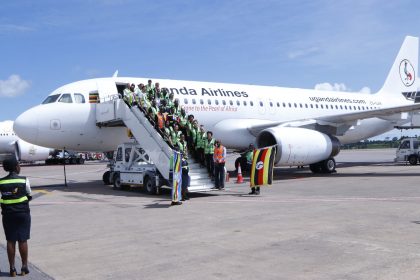East African business leaders fret at regional tensions
 Successes such as One Stop Border Posts to reduce document duplication and speed up transit trade, are turn out to be wasted efforts.
Successes such as One Stop Border Posts to reduce document duplication and speed up transit trade, are turn out to be wasted efforts.
East African business leaders have asked East African Community (EAC) heads of state to get back on message and recall the basic ideals that caused the revival of the organization in 1999 after breaking up in 1977 due to political disagreements.
The call comes amid border tensions between Rwanda and Uganda together with the postponement of the next summit scheduled for Arusha at the end of this month for lack of a quorum. The EAC membership is made up of Burundi, Kenya, Rwanda, South Sudan, Tanzania and Uganda.
“The EAC should be people-centred. It should be private sector-led. For us, we do not care about the politics. What we care about, is having a market for our goods and services. We hope the heads of states will soon find solutions to the challenges that are facing the community,” Gideon Badagawa, executive director of the Private Sector Foundation Uganda(PSFU) said on Tuesday. Postponement of the summit was announced later in the day.
Badagawa said issues like closure of the border by Rwanda, persistent internal conflicts in Burundi and eastern Democratic Republic of Congo, the Ebola scare in that country and refusal of Ugandan goods over standards in Kenya and Tanzania are undermining the bloc’s economic potential.
He was speaking at the launch of the High-Level Business and Investment Summit originally set to take place alongside the now postponed presidential summit set for November 30. The occasion was also planned to mark the 20th anniversary of the revived EAC.
The East African Business Council (EABC) executive director, Stuart Mwesigwa said although the EAC is one of the Africa’s fastest-growing regional blocs, the current political tensions between member states is harming the private sector. During the past four years, Burundi has largely retreated into isolation while South Sudan has failed repeatedly to agree on formation of a unity government.
Intra-EAC trade is the highest among regional economic communities in Africa at 20 pc in exports, nearly double the continental average. However many companies are now hampered by non-tariff barriers, other unilateral trade restrictions, slow implementation of harmonization rules and increasing protectionist attitudes. All these factors are undermining the EAC’s fundamental objective towards having open borders. Relations between Kenya and Tanzania have in the recent past also been strained by quarrels over trade in cooking gas, dairy and confectionery products.
Such successes the Single Customs Territory and elevating major regional frontier points into One Stop Border Posts to reduce document duplication and speed up transit trade, are now looking to be wasted efforts.
The EABC in partnership with the various EAC private sector foundations and investment promotion agencies are behind the proposed meeting under the theme ‘EAC@20: Private Sector Driven Regional Integration for Increased intra-EAC trade and investments’.
Other issues originally on the agenda, implementation of the directives of the Summit, including creation of one air space, finalising the review Common External Tariff, Trade Remedies Committee, ratification of the Sanitary and Phytosanitary Standards Protocol and enhancing the role of private sector as true partners onto the regional policy and decision-making organs of the EAC and completion of the African Continental Free Trade Agreement negotiations.

 Brussels Airlines to announce Nairobi service
Brussels Airlines to announce Nairobi service
 SITA promises enhanced travel experience after Materna acquisition
SITA promises enhanced travel experience after Materna acquisition
 Saudia’s 105 aircraft order stretches A320neo lead over rival Max
Saudia’s 105 aircraft order stretches A320neo lead over rival Max
 Boeing refuses to pay hackers $200 million for stolen Data
Boeing refuses to pay hackers $200 million for stolen Data
 Uganda-Tanzania announce date for second joint business forum
Uganda-Tanzania announce date for second joint business forum
 Uganda Airlines leased A320 arrives in Entebbe
Uganda Airlines leased A320 arrives in Entebbe
